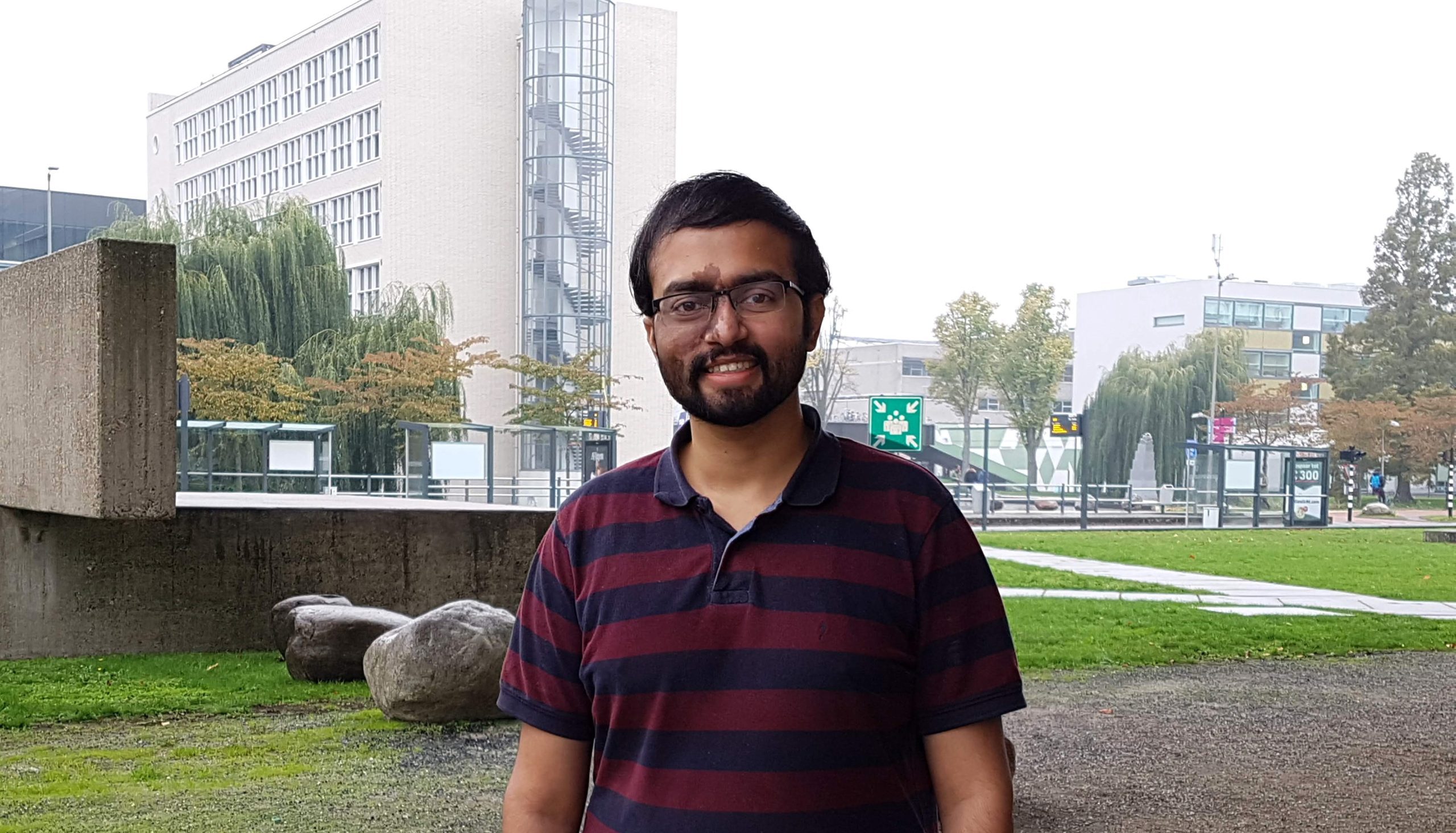If you struggle with mental health issues, master’s student Krishna Thiruvengadam wants you to know you’re not alone. What’s his story?
"I see that there’s an increase in awareness about mental health nowadays on campus, but resources are not accessible enough for students." (Photo: Heather Montague)
“Even prior to my arrival in the Netherlands, I had a few depressive episodes, but when I came here it became worse. As a student, there is always pressure and it’s a very competitive university so you really need to push hard. As an international student, it’s a new country, a new culture, and you also have to get used to the new educational system. It was difficult to juggle between mental health and the increasing study load.
Over time, I really started to fear being around people, which would cause claustrophobia and panic attacks. So, I often locked myself in dark rooms to remain isolated from the world, and that made me get more depressed. I’ve also contemplated quitting life several times, because I felt I was stuck between a depressed mind, with no seeming possibility of escape, and increased external stress and demands. But as international students, you’ve got no option to quit due to the huge financial burden which students are committed to paying back.
I gathered courage and sought support from my academic counsellor at the university. She referred me to a professional psychologist through the GP, but then I was given a waiting time of three months. This was a lot especially when every moment was a point of survival between suicidal thoughts. I needed help right then. I asked my Dutch friends and they said it’s common to have to wait. So, I had to wait. Many times, I Googled about methods to quit and even went to try some of them. But then I stopped because I had a little hope that everything shall pass. I thought, what if there’s a beautiful world out there that I’m not able to see right now? I pushed myself to wait.
‘Talking about mental health is still a taboo’
I began talking to people and found that there are more people out there that feel like me and they are stuck because talking about mental health is still a taboo in the Netherlands. I realised that the taboo stems from a fear of judgment, especially because we’re in this competitive environment. What if you’re branded as being weak? Some people think that mental health issues equal weakness, but they don’t. It’s like any physical ailment, you need to treat it and it’s going to be fine.
I see that there’s an increase in awareness about mental health nowadays on campus, but resources are not accessible enough for students. Or maybe students don’t even know they exist. When you’re depressed, standing up for yourself and asking for help is a big step. And when you don’t find the support you need it becomes very difficult.
If there’s anyone out there who needs to talk, they can email me. It will be anonymous and confidential. I’m hoping that someone in the administration will read this and think about it and maybe there can be a group or association to support people in need. Since I want to encourage people to stand up for mental health and break the taboo, I will be the first and this is my story.”
- If you or someone you know are in crisis, here is some information on how you can get help.
Who are the people who work and study on campus? We meet them in Humans of TU Delft. Want to be featured in this series? Or do you know someone with a good story to tell? Send us an e-mail at humansoftudelft@gmail.com
Heather Montague / Freelance writer



Comments are closed.